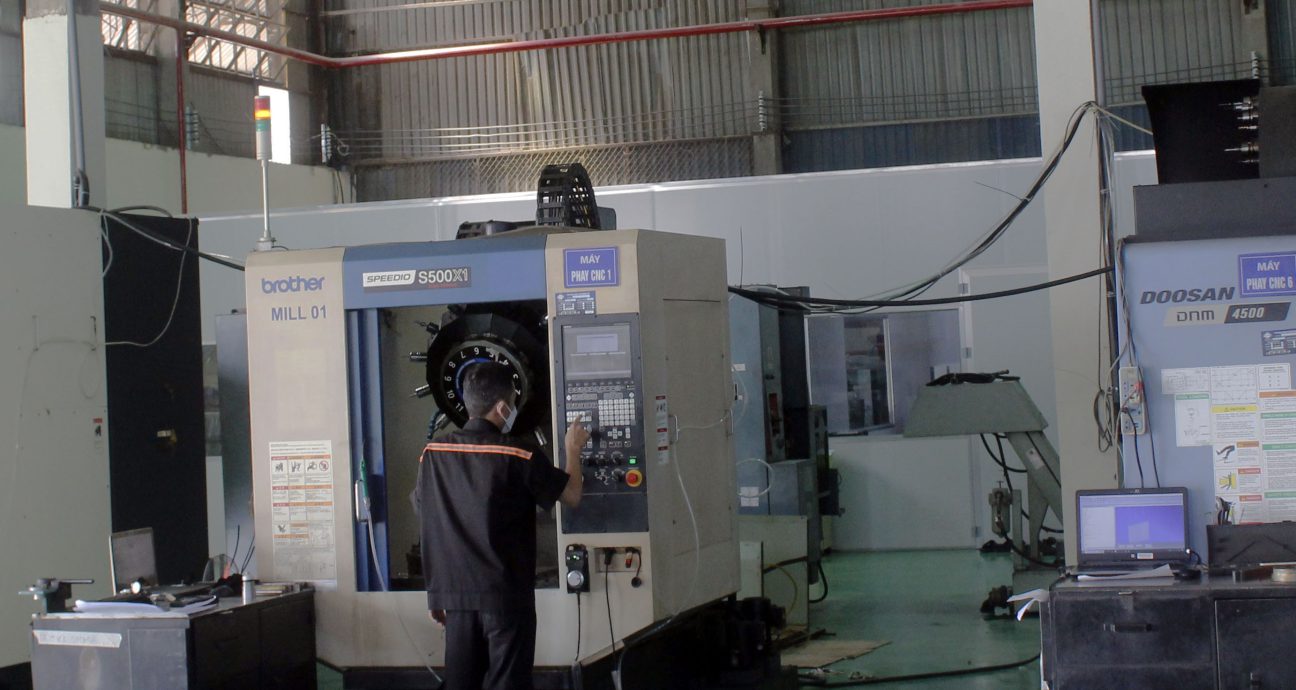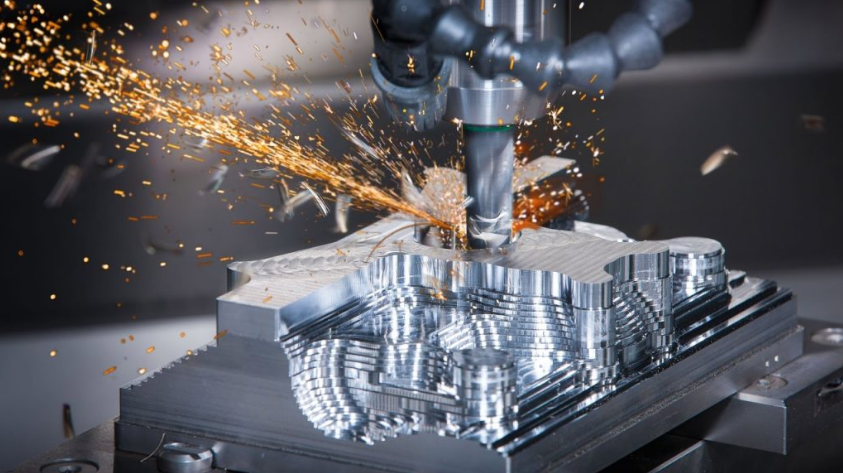
Precision mechanical processing on CNC machines
Specializing in CNC precision mechanical processing of high-quality products for Japanese and Korean enterprises and exporting to European and American countries, etc.
On the basis of advanced production and modern machinery, we are receiving trust and cooperation from many major partners.

Thanh Long precision machining capacity
We have been a trusted destination for many partners over the past time. We constantly invest in machinery, equipment, improve production, enhance quality and professionalism to meet the increasing needs of customers.
- Factory: With a factory area of over 4000m2, with 02 workshops.
- Personnel: Precision mechanical processing personnel: 95 people.
- Processing machinery: Equipped with modern machinery from CNC milling machines, CNC lathes, to Laser cutting machines, for details, please refer to
- Quality management system: Iso 9001:2015.
Thank you for your trust
In the coming time, we hope to receive more support from our customers and partners, and through our current customers, we also hope to receive introductions to partners who are looking for suppliers to cooperate with in Vietnam to build a sustainable supporting industry.
90%
customers have come back to us
Currently in Vietnam, there are many small workshops that process precision mechanics, which are easy to find, but the number of companies and factories that meet the standard requirements to process for foreign partners, export or process for large domestic partners is very small and that is a huge difficulty and obstacle when many partners want to localize components and details in Vietnam, many partners want to proactively supply the same chain right in Vietnam but cannot find a reliable and qualified partner. So the core problem of manufacturing enterprises is to improve production capacity, improve quality, improve management systems, … to meet the standards, then the opportunity to join the supply chain will come.
Frequently Asked Questions
Some questions that you are interested in are below, hopefully you will have an overview of CNC.
Precision machining is an important type of engineering manufacturing for the creation of tools and parts in a precise, stable and repeatable manner with consistency. It is a machining process used in cases where material needs to be removed from a raw product to create a finished product. Repeatability and well-controlled tolerances are the hallmarks of precision machining.
Precision CNC machining allows for the achievement of complex shapes and high quality standards in tolerances and surface roughness, which other manufacturing processes cannot achieve. Mechanical processes carried out through numerical control machines involve many product areas that require compliance with quality standards and accuracy in the results. Precision CNC machining is perfectly suited to the required complexity of important areas, allowing products to be obtained with short production times.
In today's CNC protocols, the production of parts through pre-programmed software is largely automated. The dimensions of a given part are set in place using computer-aided design (CAD) software and then converted into an actual finished product using computer-aided manufacturing (CAM) software.
CNC stands for Computerized Numerical Control. It is a computerized manufacturing process in which pre-programmed software and code control the movements of manufacturing equipment. CNC machining controls a variety of complex machines, such as grinders, lathes, and mills, all of which are used to cut, shape, and create various parts and prototypes. Today, CNC machinists combine elements of mechanical design, engineering drawing, mathematics, and computer programming skills to produce a wide variety of metal parts.
CNC machines are automated machines, operated by computers that execute pre-programmed sequences of commands. Today’s modern CNC machines understand and operate using the CNC machining language – which tells them the exact measurements to produce, such as feedrate, position, and coordination.
Today’s design and mechanical parts for CNC systems are highly automated. The mechanical dimensions of parts are determined using computer-aided design (CAD) software, and then translated into manufacturing instructions using computer-aided manufacturing (CAM) software. Therefore, it is important to have knowledgeable CNC machinists and programmers in the industry to operate this high-tech machinery.



